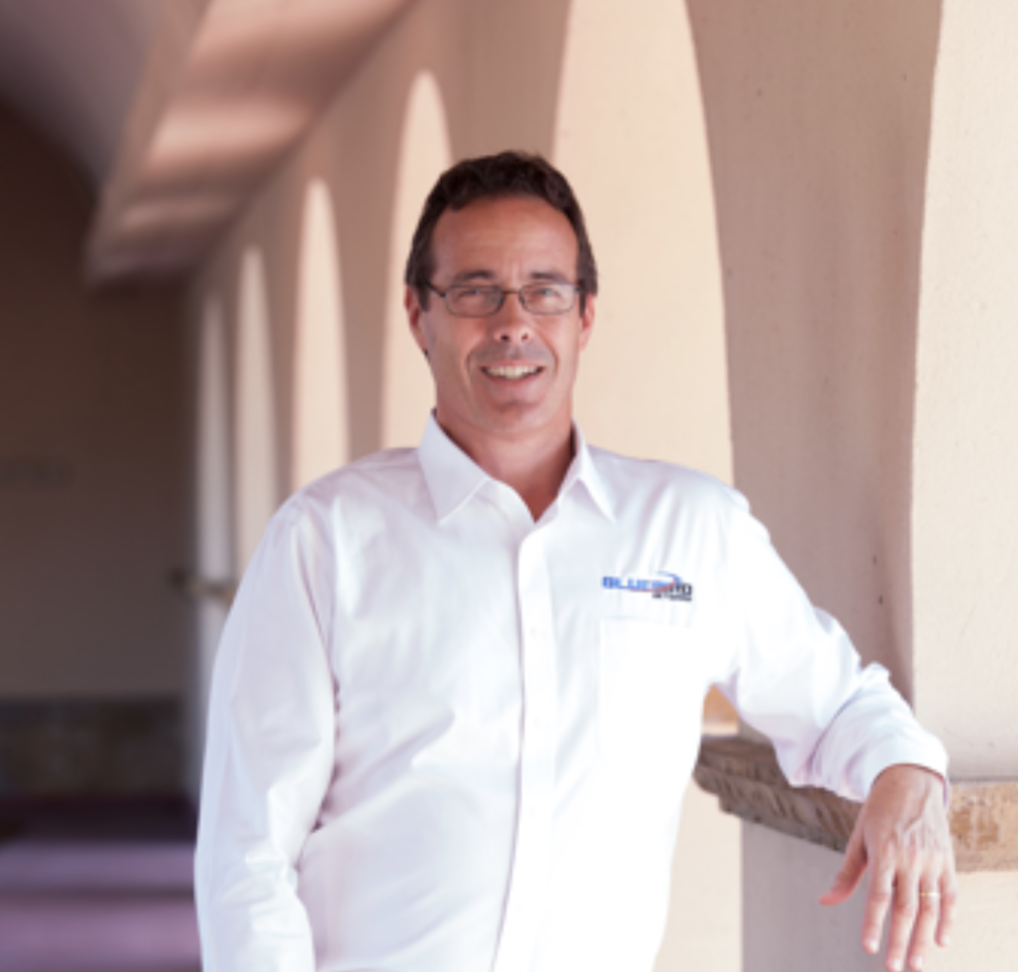Reliability, Security and Sustainability: A Journey into the Bluebird Underground Data Center with President and CEO Michael Morey
In our increasingly remote world, data and information security is a top priority for organizations globally. As more employees work from home and company data is migrated to the cloud or third-party data center facilities, enterprises need to put cybersecurity at the forefront of their procurement and network strategies.
As providers across the telecommunications industry are responding to this demand for greater data protection, they are launching innovative services to better meet customer needs. Bluebird Network is a communications infrastructure provider that supports enterprises across several industries, helping organizations access high-capacity connections while ensuring their data is safe and impenetrable. With this goal in mind, Bluebird launched its underground data center to provide customers with a highly secure and reliable facility.
We sat down with the President and CEO of Bluebird, Michael Morey, to discuss underground data centers, the benefits of partnering with a carrier-neutral provider and sustainable connectivity practices.
The Bluebird Underground Data Center
The Bluebird Underground Data Center (BBU) is housed 85 feet below Springfield, Missouri. The facility is designed to support rapidly growing customer demands for colocation and enables Bluebird to meet the requirements of enterprises migrating to high-capacity applications. In addition to providing greater bandwidth (Bluebird owns and operates their own fiber network), the BBU services international enterprises and helps them achieve maximum data security.
The BBU employs many physical security measures such as mantraps, biometric and key card access, 24/7 armed guards and more. As Mr Morey says, “When people tour the BBU they’re so often blown away because they didn’t know there was such an elite offering existed right under their nose. We have companies, not just in the Midwest, but across the country and around the world, who choose us because of the safety, security and reliability the BBU delivers.”
The facility is located on the edge of the accurately named Tornado Alley; however, its subterranean set-up protects the data center from severe weather affecting the region, as well as from floods and earthquakes. Being located so far underground also means that the facility enjoys a constant, year-round temperature that isn’t affected by seasonal shifts, making power usage consistent and preventing downtime. Additionally, the data center connects to a separate power grid than that of major metros serving Tulsa, St. Louis, Oklahoma, and Memphis – adding an extra layer of security.
The BBU data center is also carrier-natural, empowering customers with the knowledge that they’re receiving impartial advice from Bluebird and are connecting with the best route for their business. Mr Morey explains, “We pride ourselves on delivering exactly what the customer needs and supporting all their business priorities. That can come in the form of technical support and advice, hands-on support with equipment or bringing dedicated connectivity necessary to power those machines.”
DEEP Certification and Sustainability
The Data Center Efficiency Evolution Program (DEEP) is an initiative that assesses data center sustainability and awards certifications to facilities that employ sustainable practices. The accreditation is based on an evaluation framework that makes sustainability simple and quantifiable; data centers are scored against more than 70 best practices in airflow management, electrical systems, mechanical systems, and processes. Each of these practices is assigned a point value, and a DEEP Certification is awarded based on how many points the data center receives.
After years of employing sustainable practices in their data centers, Bluebird received a Gold DEEP Certification in 2022. “The DEEP Certification is meaningful because it’s a recognition of Bluebird’s long-standing commitment to being a good steward of our planet. We know data centers use a lot of power and have a major impact on the pressures affecting climate change. The DEEP certification proved that we’re not only accomplishing our goals of going completely carbon-neutral by 2040, but we’re leading the pack and showing the industry what is possible.”
A key focus for Bluebird is its goal to achieve carbon neutrality by 2040, a benchmark the team will be halfway to achieving by 2030. Bluebird is committed to providing impeccable service to its customers and giving back to the community they serve.
Partnering with Bluebird
Bluebird is a communications infrastructure provider, which means they own, operate and power their facilities with their fiber network. For customers, this means that when they partner with Bluebird, they aren’t beholden to a third-party infrastructure, which gives them greater security and reliability. Bluebird customers essentially own their network, giving them unappareled data privacy and the peace of mind of knowing their network is built on a highly resilient architecture.
In addition to the BBU, Bluebird operates its Quad Cities Data Center (BBQC) in Bettendorf, Iowa. The BBQC is a perfect counterpart to the underground facility, offering state-of-the-art power, cooling and security services and 40 direct connections to major carriers and content providers. The facility is powered by more than 80% renewable energy sources and, like the BBU, provides customers with low-latency connectivity (below 20ms) throughout Bluebird’s network.
Mr Morey says, “A number of our customers use both (the BBU and BBQC) data centers because both are of very high quality; they can leverage our direct network connections between both facilities. We make their business goals simpler, easier, less expensive, and of much higher quality, being on our own network. Additionally, many customers use our facilities as a production site and the other as a disaster recovery site.”
These complementary facilities enable businesses to build their own redundant networks to reduce latency, prevent data loss and mitigate downtime in the unlikely event of a network disruption. With an impressive NPS (Net Promoter Score) score of 70 (anything above 50 is considered exceptional), it’s clear that customer satisfaction is at the heart of Bluebird’s operations.
“We ‘wow’ our customers, do what we say when we say we’ll do it. This isn’t just a throwaway line – look at our customer testimonials, our minimal level of churn and our awards for customer service… We rarely say “no” (to our customers), and we work hard to customize a solution.”
Think Bluebird Network Could be Right for Your Business?
Visit their website or Cloudscene profile to learn more about their underground data centre and other world-class infrastructure and services, including dedicated Internet, Ethernet solutions, Private Cloud Connections, Dark Fiber, Wavelength, Colocation and more.

Contributor: Michael Morey, President and CEO, Bluebird Network
Mr. Morey has been serving as President and CEO of Bluebird Network since 2012. With more than 40 years of telecommunications experience, Morey has served as President & CEO of Voxitas, Senior Vice President at NuVox, Regional Vice President of Electric Lightwave, Inc. and held various management positions within his 13 years at AT&T.
During his tenure at Bluebird Network, the company has more than tripled in size and was named as one of the fastest growing companies in Missouri in 2015. Morey’s experience and strong management skills proved successful when Bluebird Network received INC 5000 in 2013, 2014, 2016 and 2017 as one of the fastest growing private companies nationally. Voxitas also received INC 5000 recognition in 2007, 2008, and 2009.
Former chairman of the Missouri Telecommunications Industry Association. Morey earned a BS and MBA while attending the University of Southern California.
